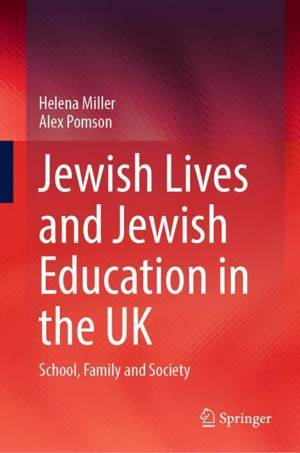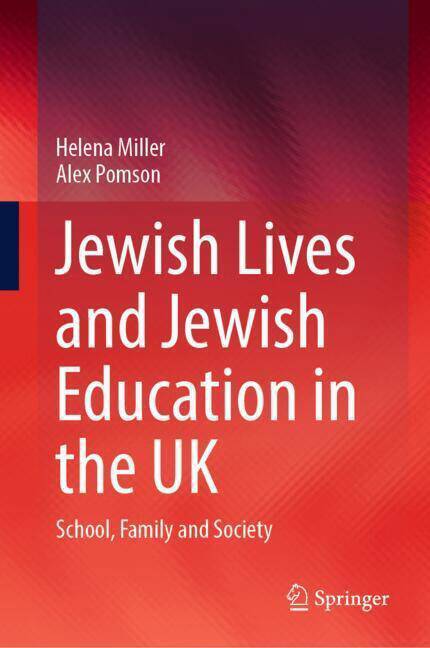
- Afhalen na 1 uur in een winkel met voorraad
- Gratis thuislevering in België vanaf € 30
- Ruim aanbod met 7 miljoen producten
- Afhalen na 1 uur in een winkel met voorraad
- Gratis thuislevering in België vanaf € 30
- Ruim aanbod met 7 miljoen producten
Zoeken
Jewish Lives and Jewish Education in the UK
School, Family and Society
Helena Miller, Alex Pomson
Hardcover | Engels
€ 168,95
+ 337 punten
Omschrijving
The book explores the evolving relationships between parents and children, the significance of the Jewish school in their lives, how young people think about religious practices, and their lives in the UK. It addresses issues related to families and schooling and pays special attention to the transitions to secondary school and then to life opportunities in the following years. It also uncovers the effect of these transitions on the family, and of the family on those transitions.
The book views these phenomena through the prism of a ten-year period from when research participants were eleven years old until they were twenty-one, drawing on a range of theoretical frameworks to help make sense of what was observed. The data help clarify how Jewish schools function as both public and community-based institutions, and what they do and do not contribute to the lives of young people. The research reported includes large scale survey data sets as well as repeated in-depth interviewswith parents and their children. The findings have multiple implications for practitioners, policy makers and researchers as they seek ways to understand and engage with families and schools. This book also appeals to researchers who are interested in the development of religious and cultural identity in the context of minority groups within multicultural societies.Specificaties
Betrokkenen
- Auteur(s):
- Uitgeverij:
Inhoud
- Aantal bladzijden:
- 212
- Taal:
- Engels
Eigenschappen
- Productcode (EAN):
- 9783031630132
- Verschijningsdatum:
- 2/07/2024
- Uitvoering:
- Hardcover
- Formaat:
- Genaaid
- Afmetingen:
- 156 mm x 234 mm
- Gewicht:
- 503 g

Alleen bij Standaard Boekhandel
+ 337 punten op je klantenkaart van Standaard Boekhandel
Beoordelingen
We publiceren alleen reviews die voldoen aan de voorwaarden voor reviews. Bekijk onze voorwaarden voor reviews.











